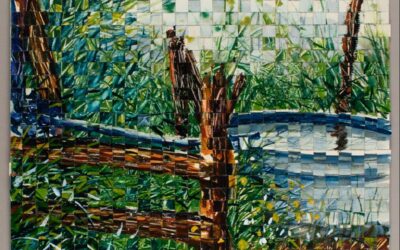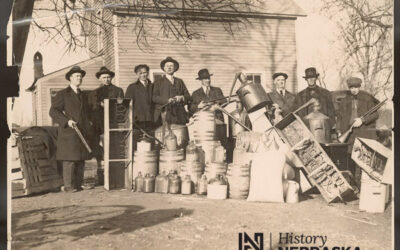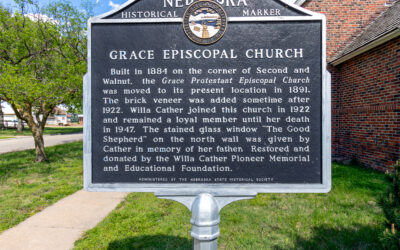
This example of a cinerary urn (at left) is from Hugo Erichsen’s The Cremation of the Dead (Detroit, 1887), published the year Edward Kuehl died.
“Edward Kuehl, one of the most peculiar characters that ever lived in Omaha, or anywhere else, was found dead in his bed last night in the back room of his place of business at 319 South Tenth street,” said the Omaha Daily Bee on March 1, 1887. Kuehl, a cobbler who was popularly known as “The Old Shoemaker,” also styled himself a fortune teller, a “Magister of Palmystry and Conditionalist,” according to his longstanding advertisement in the Bee.
Kuehl freely admitted to his friends that “his art was a harmless humbuggery, to which he held because it was more profitable than shoemaking. His patrons were numerous, and included the representatives of all classes of society, especially of the weaker sex. Unfortunate girls and women of ill repute found comfort in his forecast of the future, while fashionable ladies paid liberal bills to ‘The Old Shoemaker’ for work that did more to quiet troubled conscience and solace discontented spirits than to cover dainty feet. No one was willfully deceived by him, and those who paid him fees did it generally in the face of his own candid statement that he could give no tangible reason why they should believe any of his forecasts.” The Bee also noted that Kuehl had requested in his will that his body be cremated.

This establishment, advertised in the Excelsior Family Directory of Omaha, 1890-91, may have been the final resting place of the shoemaker’s ashes.
The following day the Bee reported a surprising development at the inquest: A friend who had witnessed the signing of Kuehl’s will containing the cremation request said “that he [Kuehl] wanted his ashes put in a bottle which was to be placed on the bar in Ed Wittig’s saloon.” Readers must have wondered if the request was in earnest. The Bee’s “Sunday Gossip” column on March 6 said of Kuehl: “No one enjoyed a practical joke better than he. In fact his whole life in Omaha was made up of practical jokes, as he termed his mysterious practices. He wound up his career with a practical joke by making a will that his remains should be cremated, and that his ashes, collected in an urn, should be placed over the bar of a popular saloon. His wish in this matter will be strictly carried out.”
However, some of Kuehl’s friends were having second thoughts. What finally happened to the shoemaker’s ashes? Find out in a Publication column on the Nebraska State Historical Society website.
— Patricia C. Gaster, Assistant Editor/Publications
(8/14/2023)




